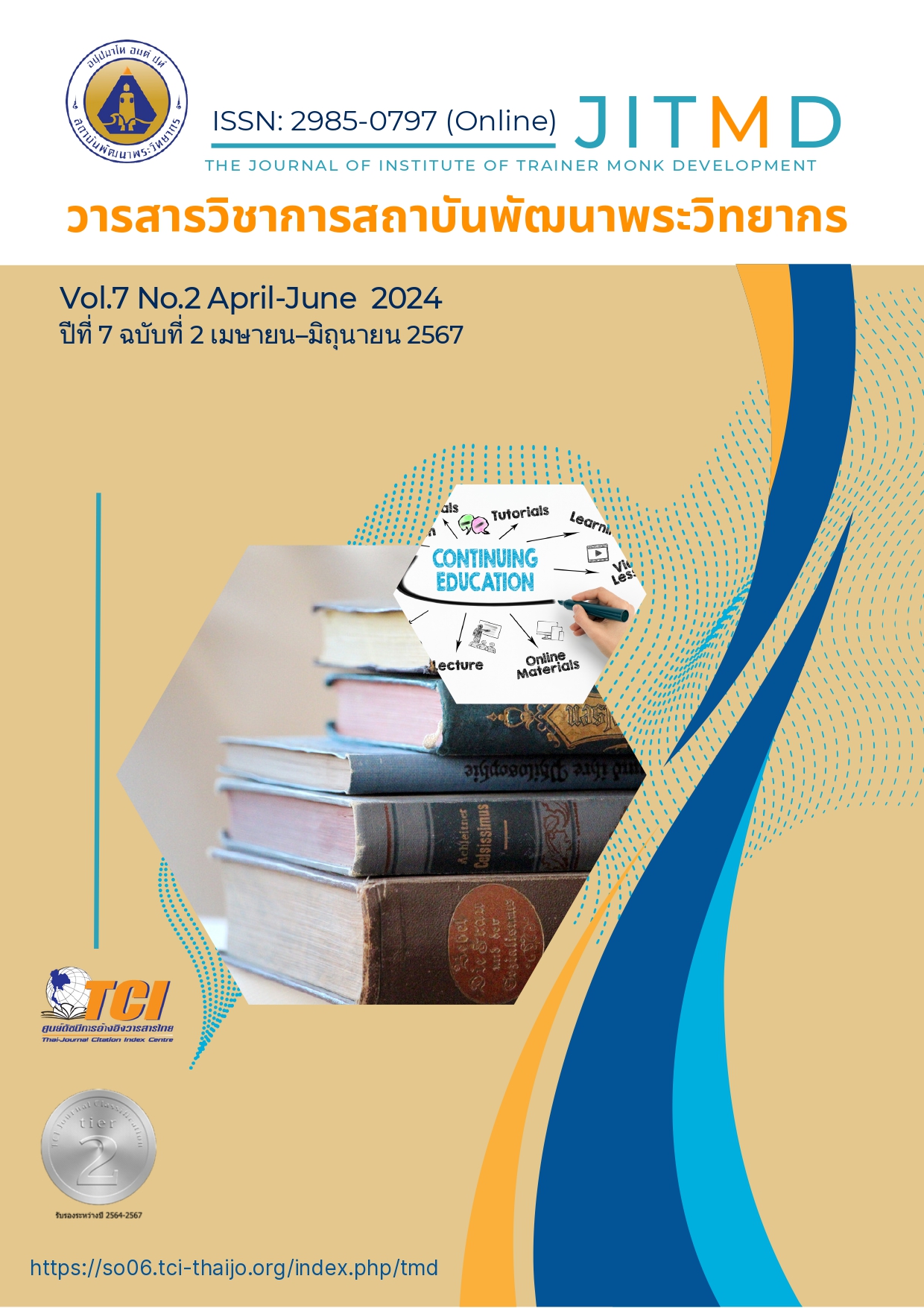Effects of Parental Supports on Motivation in Learning English Online of Grade 2 Students (English Program)
Main Article Content
Abstract
This research aimed to study parental support including monitoring support, technology support, academic support, emotional support, and communication with teachers that affect the motivation to learn English online of grade 2 learners (English Program). This research was mixed-method research. Quantitative data were collected from the questionnaires for parents of grade 2 learners and grade 2 learners. Qualitative data were collected from in-depth interviews with parents. The key informants consisted of 20 parents of grade 2 learners and 20 grade 2 learners (English Program) from The Demonstration School of Silpakorn University (Early Childhood and Elementary) in the Academic year 2021. The research instruments employed for this study were questionnaires and in-depth interviews. Quantitative data were analyzed statically by using frequency, percentage, mean, and standard deviation. Qualitative data were analyzed by content analysis. The results of this research were as follows: 1. Parental support for “monitoring” was at a high level, and 40 percent of learners felt motivated by parental monitoring support. 2. Parental support for “technology” was at a high level, and 85 percent of learners felt motivated by parental technology support. 3. Parental support for “academic” was at a moderate level, and 65 percent of learners felt motivated by parental academic support. 4. Parental support for “emotional” was at a moderate level, and 80 percent of learners felt motivated by parental emotional support. 5. Parental support for “communication with teachers” was at a moderate level, and 95percent of learners felt motivated by parental support in communication with teachers.
Article Details

This work is licensed under a Creative Commons Attribution-NonCommercial-NoDerivatives 4.0 International License.
บทความที่ได้รับการตีพิมพ์เป็นลิขสิทธิ์ของวารสารวิชาการสถาบันพัฒนาพระวิทยากร
ข้อความที่ปรากฎอยู่ในบทความที่ได้รับการตีพิมพ์ในวารสาร ถือเป็นความรับผิดชอบของผู้เขียนบทความ และข้อคิดเห็นนั้นไม่ถือว่าเป็นทัศนะและความรับผิดชอบของกองบรรณาธิการวารสารวิชาการสถาบันพัฒนาพระวิทยากร
References
กรมอนามัย. (2563). คู่มือการปฏิบัติสำหรับสถานศึกษาในการป้องกันการแพร่ระบาดของโรคโควิด 19. กรุงเทพฯ: คิว แอดเวอร์ไทซิ่ง จำกัด.
กระทรวงศึกษาธิการ. (2551). หลักสูตรแกนกลางการศึกษาขั้นพื้นฐาน พุทธศักราช 2551. กรุงเทพฯ: โรงพิมพ์ชุมนุมสหกรณ์การเกษตรแห่งประเทศไทย จำกัด.
กระทรวงศึกษาธิการ. (2564). หลักสูตรแกนกลางการศึกษาขั้นพื้นฐาน พุทธศักราช 2564. กรุงเทพฯ: โรงพิมพ์ชุมนุมสหกรณ์การเกษตรแห่งประเทศไทย จำกัด.
ธิษณา ศรัทธารัตน์ธนา. (2564). การจัดการเรียนการสอนภาษาอังกฤษในวิธีชีวิตใหม่ในบริบทการศึกษาของประเทศไทย. วารสารครุศาสตร์อุตสาหกรรม, 20(3): C1-C15.
รัตนา แสงบัวเผื่อน และวิษณุ ทรัพย์สมบัติ. (2564). แนวทางการจัดการเรียนการสอนและการวัดประเมินผล ให้มีความยืดหยุ่น ในช่วงสถาณการณ์การแพร่ระบาดของโรคติดเชื้อไวรัสโคโรนา 2019 (COVID-19). สืบค้นข้อมูลเมื่อ 27 สิงหาคม 2564 จาก https://www.obec.go.th/
โรงเรียนสาธิตมหาวิทยาลัยศิลปากร (ปฐมวัยและประถมศึกษา). (2565). โรงเรียนสาธิตมหาวิทยาลัยศิลปากร(ปฐมวัยและประถมศึกษา). สืบค้นข้อมูลเมื่อ 7 พฤษภาคม 2565 จาก https://www.satitele.su.ac.th/
วงศ์พันธ์ อมรินทร์เทวา. (2564). เพราะการศึกษาหยุดไม่ได้ ต่างประเทศเรียนกันอย่างไรในช่วงโควิด-19. สืบค้นข้อมูลเมื่อ 7 พฤษภาคม 2565 จาก https://www.eef.or.th/education-abroad-covid/
อรรชนิดา หวานคง. (2559). English Teaching in the 21st Century. Journal of Yanasangvorn Research Institute Mahamakut Buddhist University, (7)(2): 303-314.
Butler, Y. G. (2015). Parental factors in children’s motivation for learning English: A case in China. Research papers in Education, (30)(2): 164-191.
Deci, E. L., & Ryan, R. M. (1985). The general causality orientations scale: Self-determination in personality. Journal of research in personality, (19)(2): 109-134.
Epstein, J. et al. (2018). School, family, and community partnerships: Your handbook for action. Corwin Press.
Karina Zaiets, & Janet Loehrke. (2020). These online learning tips will help parents prepare for a successful school year, even if it is virtual. Retrieved May 07, 2022 from Retrieved from https://www.usatoday.com/
Krashen, S. D. (1982). Principles and Practice in Second Language Acquisition. Learning, (46)(2): 327-369.
Leona, N. L., et al. (2021). Explaining individual differences in young English language learners’ vocabulary knowledge: The role of Extramural English Exposure and motivation. System, 96.
Masgoret, A. M., & Gardner, R. C. (2003). Attitudes, motivation, and second language learning: A meta‐analysis of studies conducted by Gardner and associates. Language learning, 53(S1): 167-210.
Niehaus, S. K. (2012). School support, parental involvement, and academic and social-emotional outcomes for English language learners in elementary school. A Dissertation Submitted to the Faculty of the College of Education and Human Development. Department of Educational and Counseling Psychology: The University of Louisville.
Tao, J., & Xu, Y. (2022). Parental support for young learners’ online learning of English in a Chinese primary school. System, 105.


